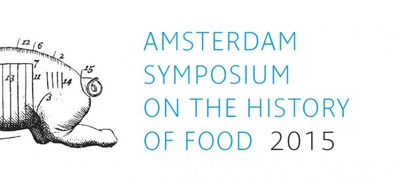RHN 42/2014 | Call
Organising Committee: Filip Degreef; Paul Koopman; Antonia Mazel; Joke Mammen; Nathalie Parys; Garrelt Verhoeven
16-17 January 2015, Amsterdam
Deadline: 15 May 2014
Food, Hunger and Conflict
Amsterdam Symposium on the History of Food 2015
The symposium has the aspiration to become an annual point of assembly and an exchange of knowledge in the field of food history. It intends to stimulate debate and research that bridges the gap between different disciplines. Submissions are encouraged to use an interdisciplinary approach, in which theory and methods from other (social) sciences are appropriated or other disciplines that take a historical stance. Another aim is to transfer academic research to a wider public and stimulate research using the Special Collection of the University of Amsterdam. The symposium is therefore targeted at both an academic and a professional audience.
When in today’s world we are confronted with the suffering of the hungry, we see them as victims in need of support, whether we pass them in the street or see distant strangers on the news. The study of the concept of hunger has shown that we cannot take this vision for granted. James Vernon indicated that it is the result of a history of changing ideas surrounding the concept of hunger. Whilst it once was recognized as the unavoidable hand of God, this later changed to a discourse of morality and individual responsibility. Those without food were seen as lacking discipline and in need of education.
The foregoing indicates that a need arises to understand definitions of what hunger represented for both those with and those without access to food to comprehend social and cultural interactions and political operations. Research into different sources can shed light on how existing ideas on poverty and hunger interacted with discourses and perceptions, strategies for survival, charity and aid to grasp what it meant economically, politically but also socially and culturally to be without food during times of prosperity, shortages, conflict and war. Through the mediation of the study of hunger strikes for example, one can study relationships of power, frameworks of culturally defined ideas of resistance, bodily integrity, sacrifice and social dynamics. Different experiences and cultural framing have significant effects on perception and remembrance of hunger, power, poverty and war.
We invite papers on topics including, but not restricted to the following:
- Governmental interferences: state intervention, import/export, price regulations and prohibitions, agricultural policy, food committees, food as national symbols and boycotts of ‘enemy’ food (e.g. Boston Tea Party), food blockades, propaganda for surrogates, charity, black markets as coping mechanisms.
- International aid & national solidarity: food committees, charity, soup kitchens, grain dispensation.
- Cultural representations of hunger: meaning and symbols in texts and images (cookbooks, menus, media, propaganda, film, art, literature, poetry) during times of war and shortages, construction of ideas of resistance and oppression using food as a medium (hunger strikes), food as a showcase of power relations and scientific opinions (force feeding of suffragettes, food in prisons), religious interpretations of shortages and hunger.
Guidelines for Paper Proposals
The conference program consists of plenary keynote lectures, paper presentations and panel discussions. If you are interested in presenting a paper at the conference, please submit an abstract before 15 May 2014. Please expect to be presenting to a large audience of up to 350 people, including academic as well as professional participants. The conference language is English. Presenters of accepted papers are asked to speak 20 minutes, followed by a discussion with the panel and the audience under the supervision of a session chair.
Applications should include:
- title of proposed paper
- abstract (maximum 500 words)
- biographical information (short CV)
- contact information (e-mail, telephone and postal address)
- Applications should be sent by the deadline of 15 May 2014 to: Foodhistory-ub@uva.nl
Notification of acceptance: As it may not be possible to include everyone’s submission, the organizing committee and advisory board will make a selection. You will be notified if the paper is accepted by 30 June 2014.
More information and updates about the symposium
Source: Food Communication
